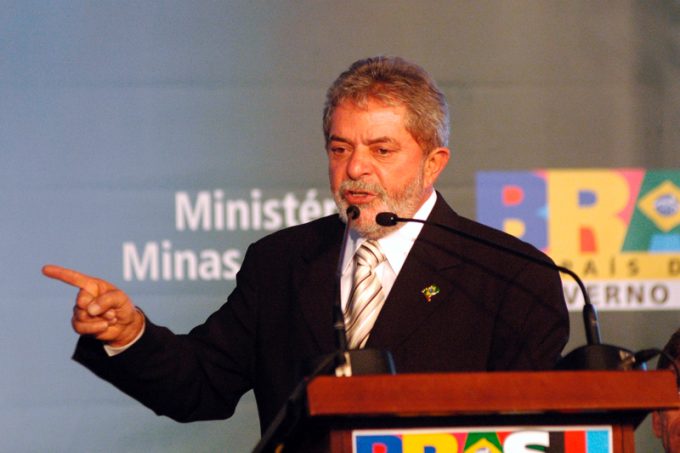US Gulf ports maintain momentum and see containers as 'the way forward'
The pendulum swing appears to have missed US ports on the Gulf of Mexico, which ...

Brazil’s president, Luiz Inácio Lula Da Silva, (pictured), more commonly known as Lula, took to the podium at COP28 today and slammed “eloquent and empty speeches” on climate.
“The planet is tired of climate agreements and goals that were not fulfilled,” he said. “The climate financing to the poor countries never comes… we need concrete actions.”
And he asked: “How many world leaders are, in fact, committed to save the planet?”
Currently, South America is in the grip of El Niño, a naturally occurring weather phenomenon, vastly exacerbated by rising global temperatures. The heat has lowered water levels in the Panama Canal, leading to draught restrictions, queues and surcharges. (In fact, according to Project44, as of yesterday more than 40 containerships are in line, waiting to navigate the canal. The week of November 19th showed a 250% increase in the maximum transit time, jumping from 1.7 days to six.)
It is spring in the southern hemisphere, but in Brazil, heat index measures – a metric of human-perceived heat which takes into account humidity – are reaching nearly 60°C.
Although challenging to attribute it as a direct cause of mortality, given that it can affect the lungs, kidneys and heart, the heat-death of a 23-year-old concertgoer in Sao Paolo hit recent headlines. The concert itself was cancelled, after the heat and humidity rendered pop megastar Taylor Swift unable to sing.
And with the height of summer still some way off, heat has been responsible for historic low water levels and unnavigable rivers.
In Manaus, where the Amazonas and Rio Negro converge to form the Amazon, one vendor told The Loadstar: “We had to switch to road transport from neighbouring municipalities, and things have become more expensive. Several rivers and lakes disappeared, turned into sand.
“Many have lacked access to drinking water, and many sellers are still unable to work. It is monsoon now, and the rain has fallen constantly for two weeks, but the river is still too low.”
President Lula’s speech follows the IMO MEPC80 summit, in which the Brazilian delegation played a substantial role, working alongside China and Saudi Arabia, to water down shipping’s climate commitments to the point where the phrase “indicative checkpoints… where national circumstances allow” was used in place of “targets” in the final draft.
The Brazilian delegation to IMO included representatives from Petrobras, Transpetro and mining company Vale.
But in a speech to COP28 today, Camille Bourgeon, the IMO’s technical officer, marine environment division, characterised the outcome of MEPC80 differently, calling it “a historic moment of unanimous commitment” to climate action.
“The IMO strategy foresees reaching net-zero greenhouse gas emissions by or around 2050, taking into account different national circumstances,” he said. “The strategy also defines the reduction pathway towards net-zero, namely by reducing emissions by at least 20%, striving for 30% by 2030 and by at least 70%, striving for 80%, by 2040.
“We have initiated a comprehensive assessment of possible impacts on the global fleet, on world trade and on states of the proposed measures to ensure that shipping’s net-zero future will leave no one behind,” he added.
The Loadstar’s coverage of COP28 is sponsored by EVERGREEN LINE: leading the development of a sustainable global container transportation system
To find out more about EVERGREEN LINE’s sustainability strategy please click HERE

Comment on this article